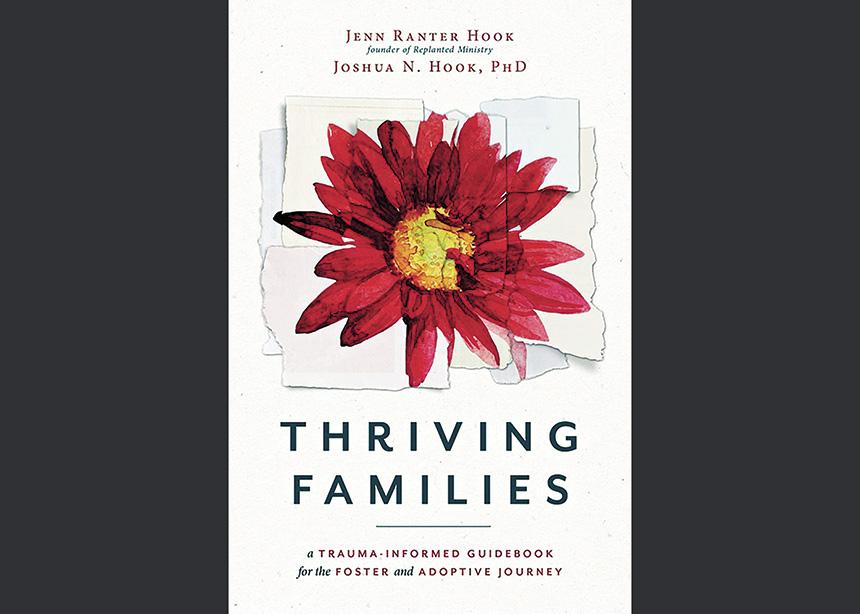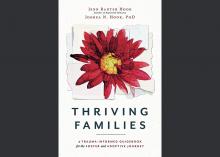While parenting can be a struggle, parenting through foster care or adoption has extra challenges, says Jenn Hook in Thriving Families. Her experience as a counsellor with a foster-care agency, and as the founder of a non-profit organization that supports foster and adoptive families gives her a solid understanding of these challenges.
Although the book is written from Hook’s perspective, her husband, who is a clinical psychologist, also had a hand in it. A professor of psychology at the University of North Texas, Joshua Hook is aware of the latest research on how to help families do well.
Written specifically to help adoptive and foster parents, the book is also for those who are considering becoming foster or adoptive parents, and to help churches and other groups provide better support to these parents. Insights into the unique realities of children affected by adoption and foster care is important for those who care for them.
“Parenting through adoption and foster care is holy work, work that is so close to the heart of God,” say the authors. At the same time, they recognize that parenting can be very difficult and, when children have experienced significant trauma, there are no easy fixes.
Using lots of personal examples and case studies, the book provides valuable information about the complex situations that may be affecting children in foster care. As well as the struggle for self-identity, they may have experienced trauma or never had a trusting relationship with a dependable caregiver. There are many other issues that can make it difficult for children to relate to a new family situation, including medical or mental-health concerns, or unfamiliar social or cultural expectations.
A large section of this book provides suggestions for how to make children feel safe, how to connect with them and help them regulate their emotions. There is also a chapter on how to navigate relationships with birth families.
“Telling children they are safe isn’t going to automatically make them feel they are safe,” writes Jenn. “Telling children they are safe and then being a safe person, consistently, day after day, is what will move the needle over time.”
She writes in an encouraging way, recognizing that consistent parenting through adoption and foster care can be challenging.
Although it is a kind of how-to book, the personal stories and case studies provide interesting reading. Meanwhile, the suggestions for foster and adoptive parents offer helpful guidance for anyone dealing with children.




Add new comment
Canadian Mennonite invites comments and encourages constructive discussion about our content. Actual full names (first and last) are required. Comments are moderated and may be edited. They will not appear online until approved and will be posted during business hours. Some comments may be reproduced in print.